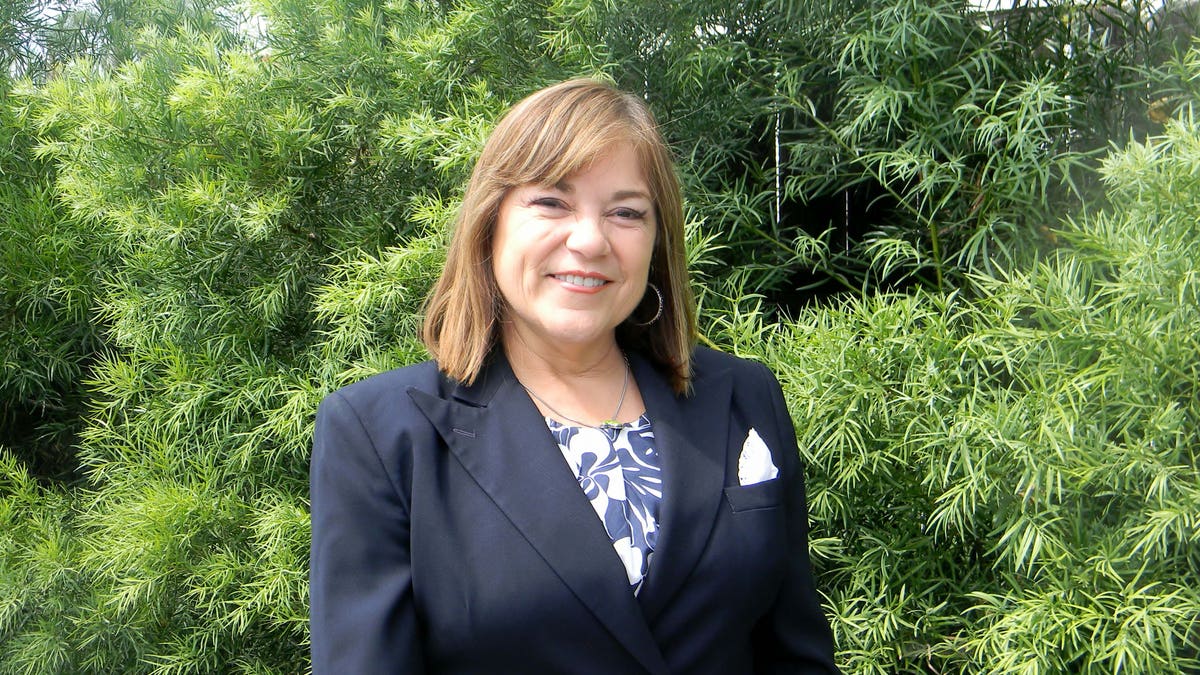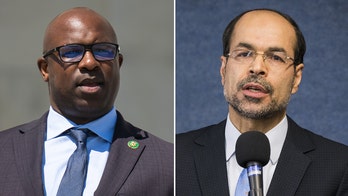
LOS ANGELES – Sitting behind a glass top desk in her Anaheim campaign office, Loretta Sanchez is in an upbeat mood. Her bid to succeed fellow Democrat Barbara Boxer in the U.S. Senate has gained momentum after a recent poll showed her as a serious rival to front-runner State Atty. Gen. Kamala Harris.
“We believe we can win,” the representative from Southern California’s District 46 declares with determination. “I’ve always been the underdog. So you can give me that name any day because I know how to win an election.”
Sanchez, who was first elected to Congress in 1996, says phone calls and messages in support of her candidacy have been pouring in over the last few weeks.
The USC Dornsife/Los Angeles Times survey found Sanchez trailing Harris 17 percent to 26 percent among registered voters.
Former state Republican chairman Tom Del Beccaro followed with 10 percent, and Assemblyman Rocky Chavez (R-Oceanside) with 9 percent. Former state Republican Party leader George "Duf" Sundheim entered the race this month, too late for inclusion in the poll.
But Sanchez was the clear favorite among Latinos in the poll. Among Hispanics, she’s preferred over Harris 34 percent to 18 percent. More than half of the people who took the survey in Spanish support the congresswoman.
"It’s very important for young people to get involved in politics, to see somebody that looks more like them,” said Sanchez, highlighting the fact that almost 50 percent of the population in California is Latino.
“Latinos should understand the importance of sending the first Latina to the United States Senate,” she added.
Voter turnout overall has been low in California over the past decades – 25.2 percent in the June 20 primaries and 42 percent in the November general elections in 2014 – but the Latino voter turnout rate is especially low: 28 percent in November 2014.
Sanchez, the daughter of Mexican immigrants, believes she will be the key factor in getting Latino voters to the polls.
“If I’m on the November ballot, I believe that I can pull the Latino vote like crazy to come out to vote. If I’m not there and it’s Ms. Harris, I don’t think they’ll come to vote,” she added.
But a Hispanic ancestry may not be enough to win the Latino vote, according to Jose
Moreno, president of Los Amigos, an Orange County community group.
“It’s not enough to speak Spanish and do volunteer fairs and ribbon cuttings,” said Moreno, who also chairs the Chicano and Latinos Studies at California State University Long Beach. Sanchez “needs to work hard,” he added, and show “how in the public positions that she holds she has abdicated, enabled and supported the improvement of conditions for Latinos in California.”
“She’s been in Congress for 20 years,” he noted. “The question is: has she taken any real risk when the community has needed a strong voice on immigration reform, corporate welfare or corporate interest?”
Sanchez admits that the Hispanic vote is not hers for the taking just because she is a Latina herself.
“I have to work for the Latino vote,” she said before laying out the policy issues –comprehensive immigration reform, the economy – she believes will lure Hispanic voters to the polls.
“Latinos need to know where I stand on jobs and minimum wage. They need to know where I’ve been on the environment. They need to know what I have been working on with respect to the military,” she added.
In order to win, however, Sanchez will need more than the Latino vote — she is not only trailing Harris in the polls, but also in the money race.
Harris, San Francisco’s former district attorney, took in $1.6 million in contributions between April 1 and June 30, according to federal campaign finance reports released in July. Sanchez reported collecting $618,421 during that same quarter, after entering the race in mid-May.
As of June 30, Harris had just under $3 million in her campaign coffers, compared with about $1.1 million for Sanchez.
“We estimate that we are going to need between $8 and $10 million,” Sanchez said. She is hoping that the new poll numbers will translate into more contributions from donors who up until now have remained lukewarm.
Sanchez’s campaign team is also launching what she describes as a “very strong everyday normal campaign” so followers can send “anywhere from $1 to $10.”
But she believes her opponent requires more cash.
“I think it’s tougher for her,” she said. “She will raise about $12 to $15 million. She doesn’t have the natural entrée to a lot of places. She’s in San Francisco but it is much harder to come down to Southern California and find the vote.”
She said she has more far-reaching appeal.
“I’m going to go out and I’m going to be a campaigner for all Californians,” she said. “I’m not going to leave one area untouched. That’s what a campaign is about.”
Under California’s electoral system, the contestants who finish first and second in the June primary will advance to a November 2016 runoff, regardless of their party.
Sanchez is already looking ahead.
“In the June primary, San Francisco will show up to vote and we (South California) are busy doing other things, going to the beach, etc., but in November? The vote comes out of this area,” she said.
And in the November general election, she says she can count on Latinos and residents of Orange County who are more familiar with what she has accomplished in Washington.
“Who are the Orange County Republicans going to vote for? For the San Francisco Democrat or the Democrat who’s represented them for 20 years?” asked Sanchez, evidently counting on her and Harris making it to the runoff.




